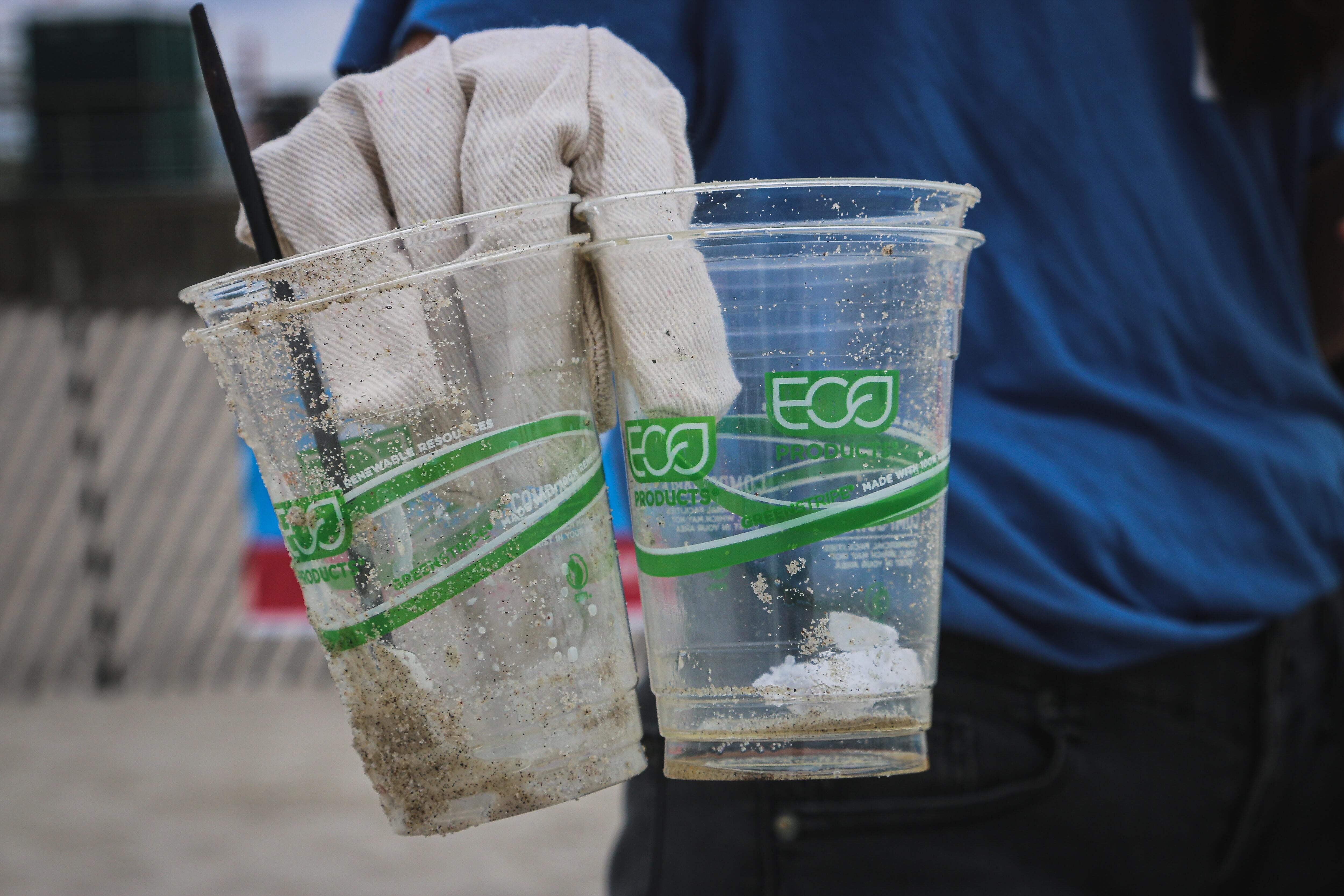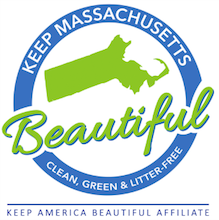
A flimsy paper straw dissolving in our drinks and bending between our lips: a more recent eye-roll-inducing first world problem, but one which ultimately points to the cognitive dissonance between our nation’s environmentally-conscious intentions and reality. Particularly within the past four years, many cities and states have mandated that food sellers limit their foodware to compostable and biodegradable materials. Some examples of compostable foodware are: grease-resistant paper, paper plates, biodegradable to-go containers, and those awkward straws made of paper or other natural fiber (Plastic, Litter, and Toxics Reduction Law, 2019). More generally, compostable foodware can be simplified down to anything certified biodegradable by the Biodegradable Products Institute (BPI).
The BPI is the leading authority on compostable foodware in North America. They claim to be a science-driven organization that supports “the production, use, and appropriate end of lives for materials and products that are designed to fully biodegrade in specific biologically active environments” (About BPI, 2023). Their standardization of the compostable movement offers consumers a trustworthy source of measurable action against pollution and global warming. Products with the BPI Certification Mark indicate the compostable product’s estimated end of life opportunity, and producers are able to certify products as biodegradable through BPI’s certification process. Furthermore, any person is able to search whether a product is biodegradable or not through BPI’s certified compostable product database (Biodegradable Products Institute Products, 2023).
The mass implementation of BPI products is seen at a legislative level. Though not mandated nationwide, many cities and states have taken it upon themselves to regulate the materials food sellers use for their foodware. For example, Washington state authorized that BPI certification is necessary by law before a single-use product may be called biodegradable at all (Sharba, 2021). Likewise, in Berkeley, California, businesses that allow customers to eat on-site must use reusable foodware and must provide color-coded bins for composting, recycling, and trash (Single-Use Foodware Rules, n.d.).
BPI certified products provide some idea of climate action—a massively implemented system that reframes our food consumption and disposal. However, while many cities and states tout their biodegradable legislation, the positive effects of BPI products are largely only seen in highly-specific circumstances.
The detailed makeup of biodegradable material is a plastic-like substance known as “polylactic acid (PLA), a polymer made up of many small lactic acid molecules produced from the fermentation of starch plants such as corn, cassava, or potato plants” (Sharba, 2021). As BPI claims, this material is designed to biodegrade in specific biological active environments. These environments, in actuality, are fairly difficult to find and make use of. Nora Goldstein, executive editor of BioCycle magazine, claims that “the only way to get the cups to break down is to employ a special type of bacteria used in commercial composting, which requires temperatures far higher than those found in most garden piles to flourish” (Sharba, 2021). In other words, tossing a PLA product into your compost pile won’t result in the product breaking down. Outside the home, PLA products still face obstacles. There are very few PLA-processing plants operating in the United States, “In a countrywide study of composting facilities, BioCycle discovered that just 49 out of 4,700 composters accepted biodegradable plastic goods,” writes journalist Laith Sharba (Sharba, 2021).
Despite this acceptance rate, compostable foodware is a valiant effort at standardized and measurable action against pollution. BPI products are a push for improvement in consumption habits, however the intent must align with the outcome. Therefore, city and state infrastructures need to better accommodate the biodegradable system they implement. Seattle and San Francisco offer stunning examples of this appropriate infrastructure; composted waste in these cities is utilized to grow future crops (Sharba, 2021). However, in most of the county’s remaining cities, all we’re left with are flimsy straws and nowhere to put them. We have the right products; now we need the right systems.
References
About BPI. (2023). BPIWorld. Retrieved January 3, 2023, from https://bpiworld.org/bpi
Biodegradable Products Institute Products. (2023). Products.bpiworld.org. Retrieved January 3, 2023, from https://products.bpiworld.org/
Plastic, Litter, and Toxics Reduction Law. (2019, February 6). Sfenvironment.org - Our Home. Our City. Our Planet. https://sfenvironment.org/reduceplastic#:~:text=Starting%20January%201%2C%202020%2C%20straws%20made%20of%20natural
Sharba, L. (2021, August 15). Now Your biodegradable cups and containers aren’t helping. Mysterious of Science. https://mysteriousofscience.com/now-your-biodegradable-cups-and-containers-arent-helping/
Single-Use Foodware Rules. (n.d.). City of Berkeley. https://berkeleyca.gov/doing-business/operating-berkeley/food-service/single-use-foodware-rules
Article courtesy of Seaside Sustainability.


